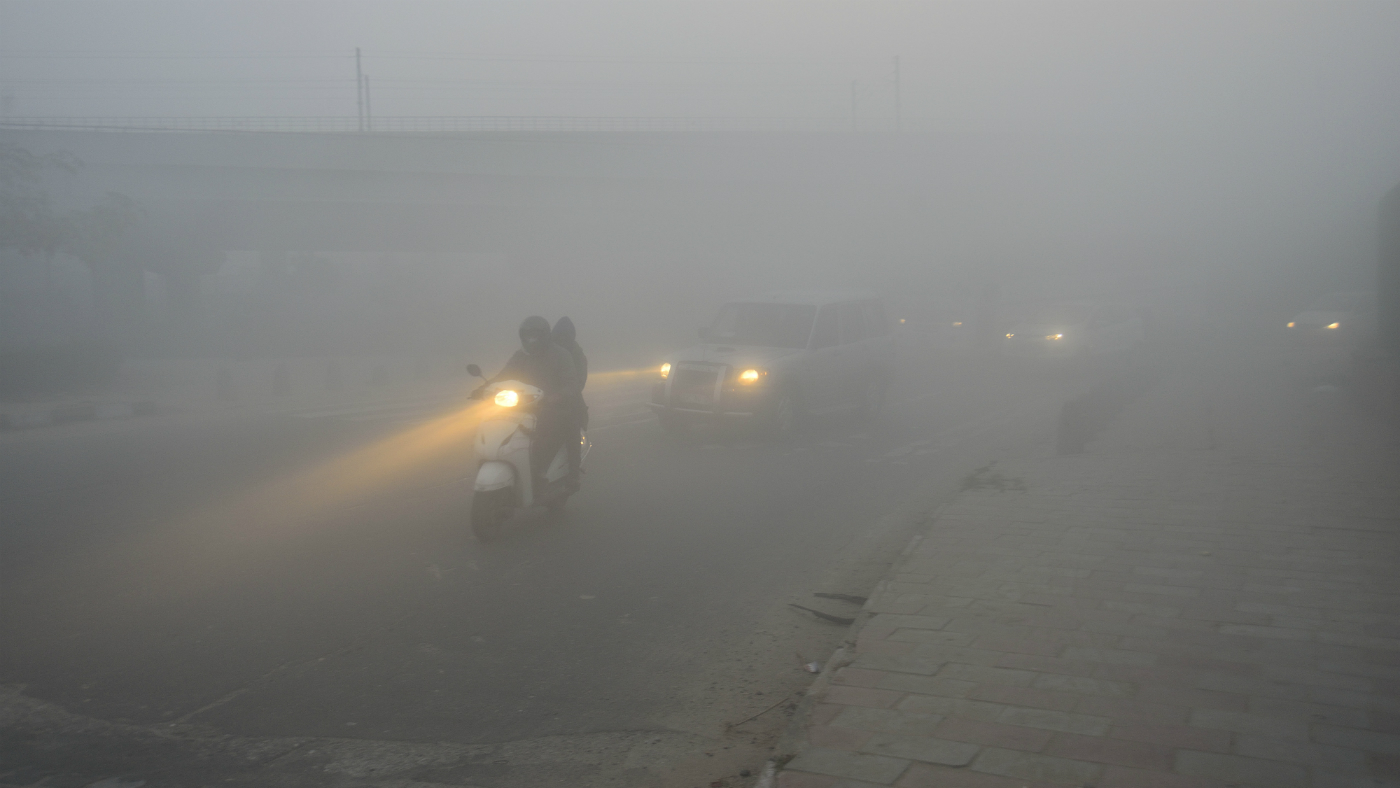Unsafe air: pollution causing kidney failure and sepsis
Study finds pollution may be deadlier than previously thought even at low levels

A free daily email with the biggest news stories of the day – and the best features from TheWeek.com
You are now subscribed
Your newsletter sign-up was successful
The number of serious health problems linked to air pollution is far higher than previously believed, a new study has found.
The Guardian reports that air pollution has already been associated with a number of conditions from “strokes to brain cancer”, but researchers at Harvard University have found that unclean air has also driven up the number of hospitalisations for other fatal conditions such as sepsis and kidney failure.
The study also found that such issues could be caused by short-term exposure to pollution even at levels below international air quality guidelines, suggesting that current legislation on air quality needs to be rewritten.
The Week
Escape your echo chamber. Get the facts behind the news, plus analysis from multiple perspectives.

Sign up for The Week's Free Newsletters
From our morning news briefing to a weekly Good News Newsletter, get the best of The Week delivered directly to your inbox.
From our morning news briefing to a weekly Good News Newsletter, get the best of The Week delivered directly to your inbox.
“The study shows the health dangers and economic impacts of air pollution are significantly larger than previously understood,” lead author Yaguang Wei said.
What did the study find?
Researchers at Harvard Chan School of Public Health in Boston analysed more than 95 million hospital insurance claims for adults aged 65 or older in the US from 2000 to 2012, according to iNews. These hospital admissions were classified into 214 mutually exclusive disease groups and were “linked with estimated daily exposure to PM2.5 based on data from the US Environmental Protection Agency”.
PM2.5 is a type of fine particulate matter produced by pollutant sources including vehicles and power stations, and it has the ability to travel past the body’s usual defences.
A free daily email with the biggest news stories of the day – and the best features from TheWeek.com
The study, published in the British Medial Journal this week, revealed that a rise of one-millionth of a gram per cubic metre of air in short-term exposure to PM2.5 was linked to 5,693 more hospitalisations a year, 32,315 days in the hospital and 634 deaths. Even a small average rise in PM2.5 of 1 microgram per cubic metre over a two-day period is linked to an increase of 68 older people per billion being taken to hospital with heart failure the next day.
The Herald reports that the researchers also found that there had been 2,050 extra admissions and 12,216 days in hospital for diseases not previously connected with PM2.5s, such as sepsis, kidney failure, and urinary tract and skin infections, indicating that the full effects of pollution are less well understood than previously thought.
Notably, all of the newly found health risks associated with pollution exposure remained consistent even on days when PM2.5 levels were below the World Health Organization (WHO) air quality guidelines.
What has the response been?
“These results raise awareness of the continued importance of assessing the impact of air pollution exposure,” said Francesca Dominici, professor of biostatistics at Harvard Chan School and principal investigator of the study.
“The strong evidence of a link between exposure to PM2.5 and many diseases, even at levels below the WHO guideline and, nationally, the National Ambient Air Quality Standards in the US, suggests that both sets of guidelines should be reviewed and updated,” she added.
Speaking about how an increase of 1 microgram per cubic metre could make an alarming difference, she added: “Remember, this is the health care cost for an increase of one unit. To give you a sense of how small this increase is, it could be the difference between a Sunday and a Monday when you have a little more traffic, or you are exposed to a little bit more when you are walking by a house where they are doing a renovation. With this tiny increase, there are enormous health care costs.”
Dr Ioannis Bakolis, of King’s College London, who was not involved in the study, agreed, claiming: “These guidelines need to be revised, as even the 9% of the population that lives within the WHO limits may be substantially affected by air pollution concentrations and its associated costs, according to the findings of the study.”
Dr Matthew Loxham, an air pollution toxicologist at the University of Southampton who also was not involved in the study, said knowledge of the health effects of particulate matter “is still lacking in many areas”.
“The harder we look, the more we find. Clearly there is much still to learn but we should not mistake knowledge gaps for paucity of evidence,” he said. “The sooner we act, the sooner the world’s population will reap the benefits.”